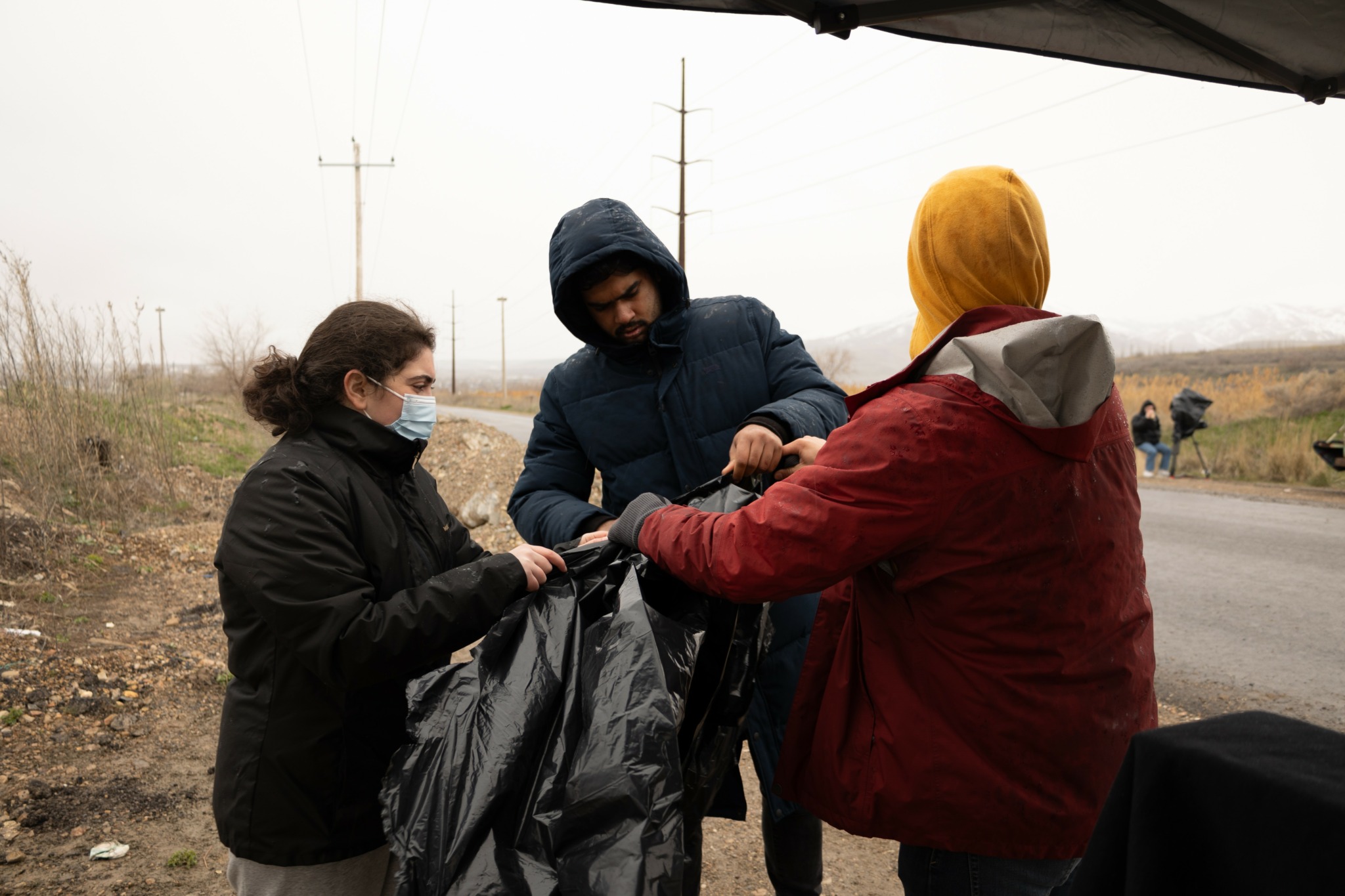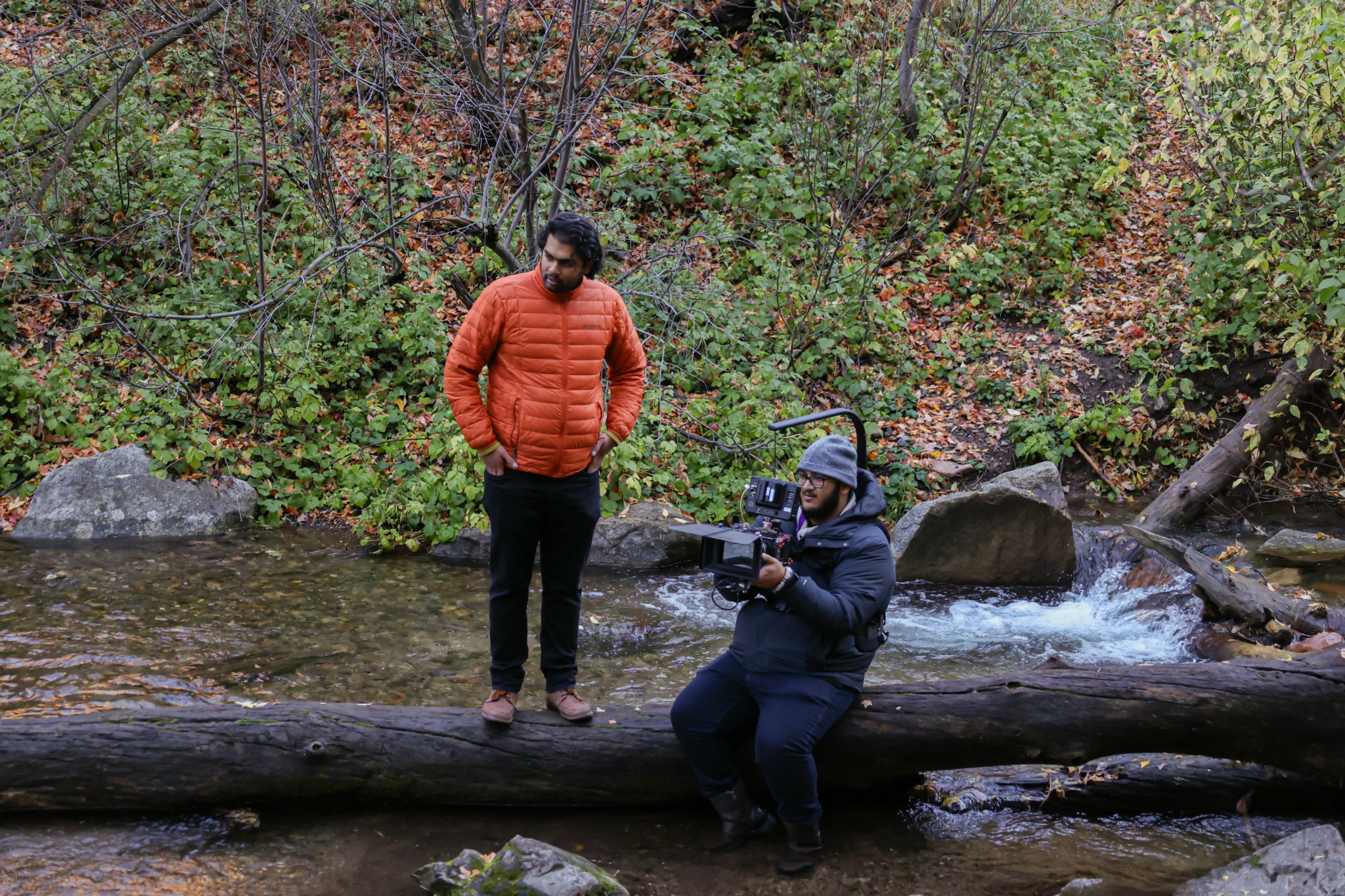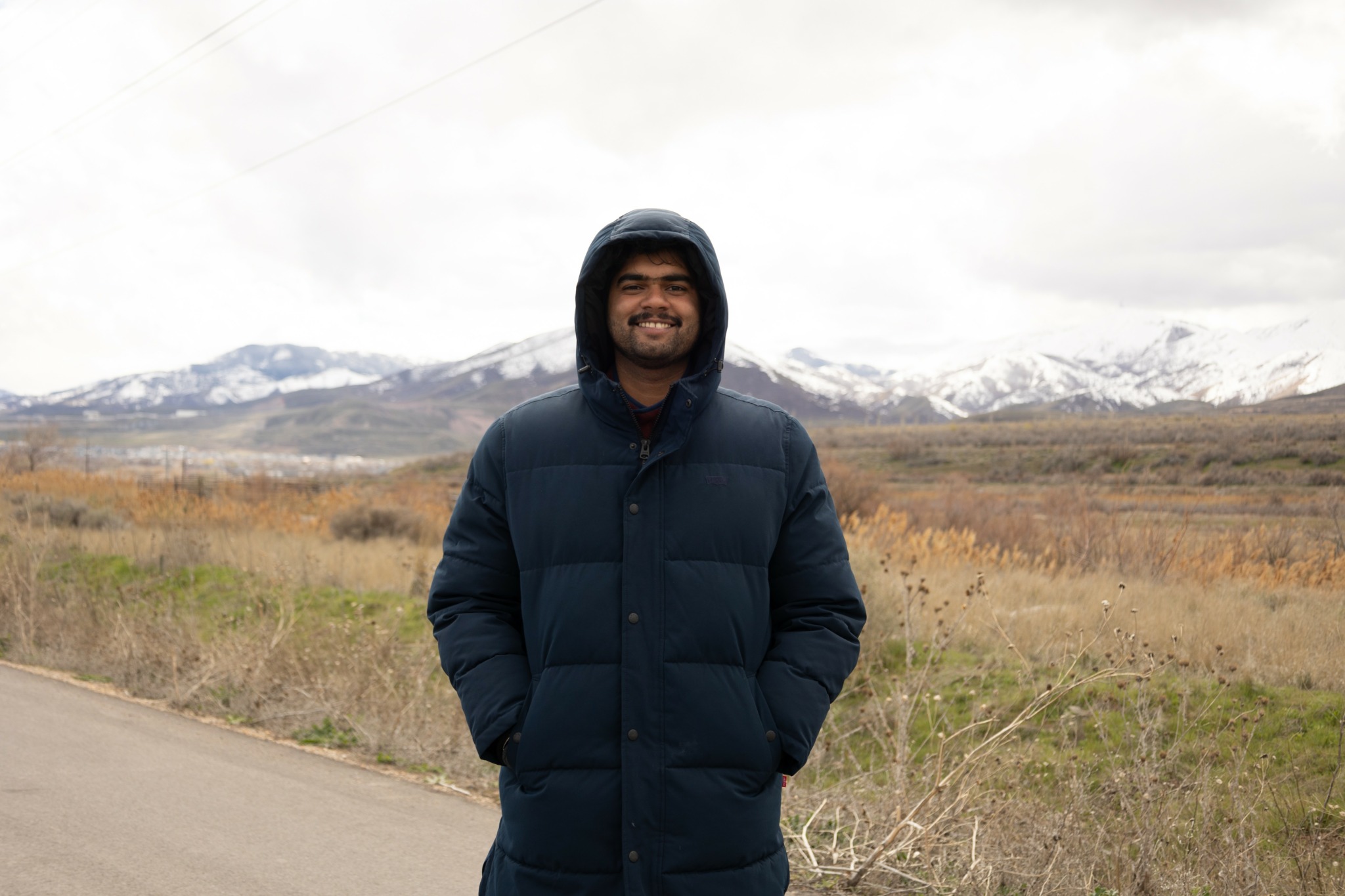We were lucky to catch up with Mustafa Bin Javed recently and have shared our conversation below.
Mustafa Bin , thanks for taking the time to share your stories with us today Can you talk to us about a project that’s meant a lot to you?
The most meaningful project I’ve worked on is my debut feature documentary, Papa’s Diary. It’s still in progress, but already the process has been incredibly profound for me, both as a filmmaker and personally.
The film started after I moved from Pakistan to the United States. While going through my father’s archives, I discovered his old diaries and a treasure of home videos he’d shot over the decades. This was a man who rarely spoke about his feelings, who embodied a very traditional role in a patriarchal society. Yet, here he was, behind the camera, quietly capturing our family life in ways that felt deeply tender.
As I began piecing together these archives, it evolved into an exploration of how love and emotion are expressed, or sometimes stifled, by cultural expectations, especially between fathers and sons in Pakistan. It became meaningful not just because it was my family’s story, but because it tapped into larger themes of memory, masculinity, and what we inherit emotionally. I realized that it’s a film about the Pakistani male intimacy and the gentleness of brown men in South Asia, something that is rarely talked about in popular media.
On a practical level, this project has pushed me to grow immensely. I’ve had to wear many hats: producing, directing, editing, interviewing family members, confronting uncomfortable truths. It’s taught me how to build a narrative from fragments, and how to use the editing process almost like a form of therapy, crafting a story that’s intimate but hopefully universal.
Ultimately, it’s meaningful because it’s allowed me to honor my father’s hidden emotional world and better understand my place within our family’s legacy. It’s also the kind of work I want to keep doing, telling stories that blend the personal and the cultural, and that invite audiences to see themselves in lives that might look very different from their own.

Mustafa Bin , before we move on to more of these sorts of questions, can you take some time to bring our readers up to speed on you and what you do?
I’m Mustafa Bin Javed, a Pakistani filmmaker and editor currently based in the U.S. My work primarily revolves around exploring identity, memory, and belonging, often through the lens of migration and family. I grew up in Pakistan, where storytelling was always around me, but filmmaking wasn’t exactly a common path. The idea of becoming a filmmaker only started to feel real after I began experimenting with cameras during my undergraduate studies and quickly found that I was drawn not just to the images, but to the deeper emotional stories they could hold.
I eventually pursued my MFA in Film & Media Arts at the University of Utah, which gave me the space to really refine my voice. Since then, I’ve been creating both fiction and non-fiction projects that often merge personal and cultural narratives. For example, my short documentary Land of Roots investigates what it means to shift from being part of a religious majority in Pakistan to a minority in America, using that tension to look more broadly at intolerance and empathy. My current feature documentary, Papa’s Diary, is perhaps the most personal project I’ve undertaken. It’s built from my family’s home videos and my father’s diaries to explore masculinity, emotional inheritance, and the ways love is expressed in silence.
Since 2019, my work has been screened at various festivals across the world, including countries like Australia, Canada, Kyrgyzstan, Pakistan, South Korea, Sweden, the United Kingdom, and the United States. Muslim Film Festival, Fear No Film Festival, Stockholm City Film Festival, Scout Film Festival, Busan International Short Film Festival, and Gandhara Independent Film Festival are some of the notable festivals where my work has been presented.. I also got the ‘Best Direction’ award for Land of Roots at the Zappers Film Festival.
As a creative professional, I primarily work in directing, producing, editing, and sometimes writing. I help bring stories, often ones that feel too nuanced or vulnerable for typical mainstream platforms, to life in a way that resonates widely. Whether it’s collaborating with other directors, cutting narrative shorts, or developing festival strategies for documentaries, I’m drawn to work that’s human at its core.
What sets me apart, I think, is my ability to find the emotional heartbeat of a story, even in very small moments, and to shape the edit around that. Having grown up in Pakistan and then lived as a minority in the U.S., I bring a dual perspective that’s both insider and outsider, which helps me approach characters and situations with empathy and complexity. I also see editing as an act of writing of sculpting, and rewriting meaning through rhythm and juxtaposition, and I love collaborating with directors to see what their story is truly trying to say.
I’m most proud of the fact that my films have sparked conversations about topics often left in the shadows, like patriarchal tenderness, the contradictions of diaspora, or how people from marginalized communities navigate identity. But beyond the awards and festival screenings, what stays with me most are the individual messages from viewers who saw themselves reflected in these stories, maybe for the first time.
At the end of the day, my work, whether for my projects or clients, is about building stories that connect across divides. I want potential collaborators and audiences to know that I’m deeply committed to honesty in storytelling, to centering overlooked perspectives, and to pushing the craft in ways that are emotionally precise and visually thoughtful. Whether it’s a documentary, a narrative short, or a branded piece, I always aim to make work that feels intimate, resonant, and true.

Are there any resources you wish you knew about earlier in your creative journey?
I wish I’d known more about the robust ecosystem of artist support in my early days, things like development labs, fellowships, and regional or culturally specific film funds. Early on, I assumed independent filmmaking was largely a solitary pursuit, but film programs and local arts grants have shown me just how much mentorship, peer feedback, and funding exist to help develop both your projects and your voice. Just as importantly, I’ve learned the value of building genuine networks and finding mentors who can help navigate the artistic and professional hurdles that inevitably come up. Discovering these resources has made my creative process far less isolating and opened doors I couldn’t have found on my own.

What do you think is the goal or mission that drives your creative journey?
At the core of all my work is a mission to explore how memory, identity, and belonging take shape, especially within diasporic and underrepresented communities. I aim to tell stories that humanize experiences often reduced to headlines, and to uncover tenderness in spaces shaped by silence, displacement, or cultural expectation. Whether examining the emotional complexities of masculinity, the quiet struggles of migration, or the inherited weight of family histories, I hope my films spark recognition and conversation, bridging divides through storytelling that is intimate, nuanced, and deeply human.
Contact Info:
- Website: https://mustafabinjaved.com
- Instagram: https://www.instagram.com/mustafabinjaved/
- Facebook: https://www.facebook.com/mustafabinjaved
- Linkedin: https://www.linkedin.com/in/mustafabinjaved/
- Youtube: https://www.youtube.com/@MustafaBinJaved



